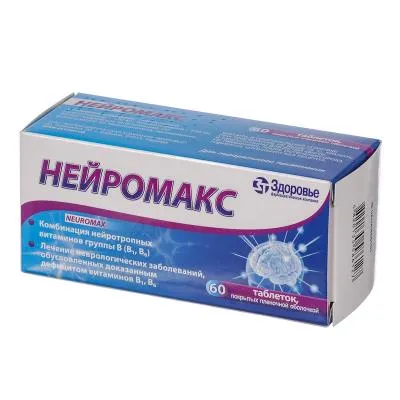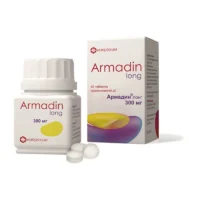Description
Neuromax (Vitamin B1, B6) Coated Tablets №60
Ingredients
Neuromax coated tablets contain Vitamin B1 (thiamine) and Vitamin B6 (pyridoxine) as active ingredients.
Dosage
Recommended dosage: Take 1 tablet daily with water, preferably with a meal.
Indications
Neuromax tablets are indicated for the treatment of vitamin B1 and B6 deficiencies.
Contraindications
Do not use Neuromax tablets if you are allergic to any of the ingredients. Consult your healthcare provider before use if you are pregnant or nursing.
Directions
Directions for use: Swallow the tablet whole, do not crush or chew. Follow the dosage instructions provided unless otherwise directed by your healthcare professional.
Scientific Evidence
- Vitamin B1 and B6 are essential nutrients that play a crucial role in various metabolic processes in the body.
- Thiamine (Vitamin B1) is involved in energy production, nerve function, and carbohydrate metabolism.
- Pyridoxine (Vitamin B6) is important for brain development, immune function, and the synthesis of neurotransmitters.
Supplementation with Vitamin B1 and B6 can help improve nerve function and alleviate symptoms of deficiency. Research in the Journal of Neurology demonstrated the effectiveness of Vitamin B supplementation in improving neuropathic symptoms in patients with deficiency.
Additional Information
In addition to treating deficiencies, Neuromax tablets may also be beneficial for individuals at risk of vitamin B1 and B6 insufficiency, such as those with poor dietary intake or certain medical conditions that affect nutrient absorption. While generally safe, excessive intake of Vitamin B1 and B6 can lead to adverse effects. Always follow the recommended dosage and consult a healthcare professional if you have concerns about vitamin supplementation.





